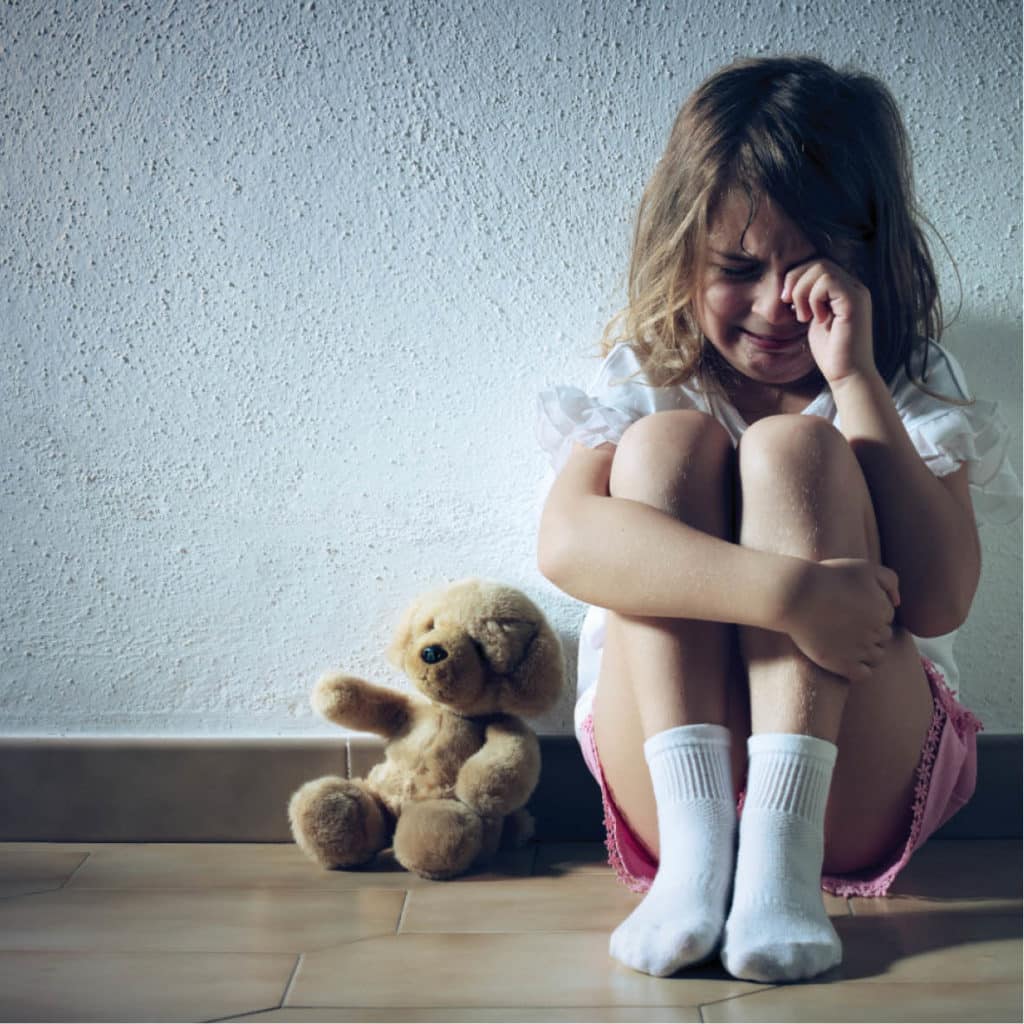Anxiety affects all of us at times; it’s the body’s normal reaction to a perceived threat or danger. But for lots of people, anxiety can have a huge impact on their life and stop them from doing things they enjoy. This is known as anxiety disorder.
In this week’s blog, in honour of Children’s Mental Health Week, we’re looking at how to spot anxiety in children and the support available if you think your child might need it.

What is anxiety?
Anxiety is your body’s normal reaction to a perceived danger or stress. It is when you feel scared, worried or panicked about something. Everyone experiences these feelings and they usually go away once the threat or danger is no longer there.
What makes children anxious?
Children can feel anxious different things at different ages. From about 6 months to around 3 years most children experience separation anxiety. This is developmentally normal behaviour and will usually pass by the time the child is 2 or 3.
It’s also typical for pre-school children to develop specific fears or phobias such as a fear of the dark, certain animals, heights and blood for example and these fears usually go away on their own as the child gets older and their brain develops more.
There will be other times in a child’s life when they may feel anxious such as starting a new school, being away from their primary care givers for a period of time or before taking a test.
When does it become a problem?
Anxiety becomes a problem when you still feel anxious even after the problem has been solved or the threat or danger has been removed. Someone with anxiety disorder may feel like their worries are too big to manage and that they can’t continue their daily life as normal.
Severe anxiety can harm children’s mental and emotional wellbeing, affecting their self-esteem and confidence. They may eventually become withdrawn and try to avoid any situations where they know they may feel anxious.
For young children it can be hard for them to articulate how they are feeling and their anxiety may manifest in several ways.
So how can I tell if my child is anxious?
Changes in behaviour
Look for sudden and noticeable changes in your child’s behavior. This may include becoming more withdrawn, excessively clingy, tearful or displaying increased irritability.
Behaviour changes at night
They may struggle to get to sleep or stay asleep at night. They may start wetting the bed when they have previous been dry at night or they may start to have bad dreams.
Physical symptoms
Anxiety can manifest physically, leading to symptoms such as stomach aches, headaches, nausea, or changes in sleep patterns.
Excessive worry
Older children may express worry about various aspects of their lives, such as school, friendships, or family dynamics.
Avoidance
Reluctance to participate in certain activities, especially those they usually enjoy. Reluctance to attend school or nursery, or interact with their friends could also indicate anxiety.
Changes at school
Anxiety can impact a child’s ability to concentrate. For school-age children a change in their behaviour at school could indicate feelings of anxiety.
How to Help Children with Anxiety
Communication
Talk to your child in an age-appropriate way and encourage them to express their feelings and concerns openly. Create a safe space for them to share their thoughts.
Teach relaxation techniques
Introduce simple relaxation techniques such as deep breathing exercises or mindfulness activities to help your child manage stress and anxiety.
Promote healthy habits
Ensure your child gets enough sleep, eats nutritious meals, and engages in regular physical activity. These factors contribute to overall well-being and can positively impact anxiety levels.
When to get help for your child’s anxiety
If your child’s anxiety is severe, persistent and interferes with their everyday life, it might be time to get them some extra support with it.
The best place to start is your GP. If they are school it’s definitely work making an appointment with their teacher to talk to them about supporting them at school too. The teacher may want to invite the SENCo (Special Educational Needs Co-ordinator) to that meeting too.
You can get help and advise about children’s mental health from Young Minds’ free parent helpline on 0808 802 5544.
There is also lots of useful information on the NHS website.
